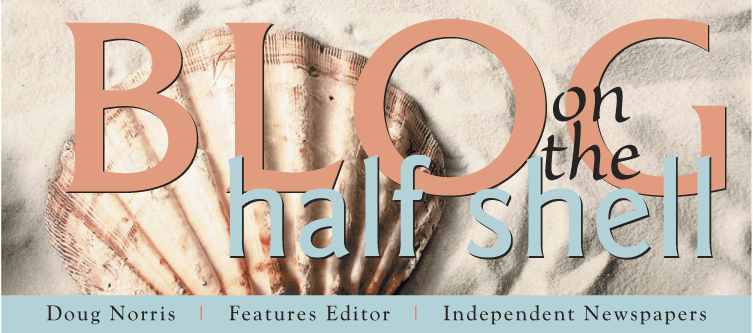(Some partnerships are odd. Massachusetts gets native son, John Hodgman, best known for his appearances on The Daily Show with Jon Stewart and TV commercials for Macintosh computers. Now a transplanted New Yorker, Hodgman’s Bay State rambling seems to miss its mark: “I guess that I am from Massachusetts. But I never felt at home there, and, really, no one ever does.” Yeah, well. No. Having lived there myself, and having shared conversations with countless residents from the Cape and the Islands to Boston to the Berkshires over the years, I’m fairly confident in saying that many feel very much at home in Massachusetts and couldn’t imagine living anywhere else. Hodgman does allude to the state’s sports mania, which he doesn’t share…a point emphasized by the error in the following sentence: “The local sports teams – which I am told are the Baseball Red Sox, the Football Patriots, the Basketball Celtics, the Hockey Bears, and of course the famous Boston Lobsters of the World Team Tennis League – are an obsession.” Yeah, well. No. Lobster sarcasm aside, it’s the Hockey Bruins. Your Stanley Cup champion Hockey Bruins. The Bears are a football team that plays in Chicago.)
Lahiri is a good choice to represent Rhode Island, even though her short stories and novels often draw upon her autobiographical experiences of feeling alienated in the culture she grew up in. After some cursory geography and history, she moves into memoir, sharing details about her upbringing in “a place originally called Little Rest.” She’s at her best when engaging in the tactile sensations of the place, as in this paragraph:
The Atlantic I grew up with lacks the color and warmth of the Caribbean, the grandeur of the Pacific, the romance of the Mediterranean. It is generally cold, and full of rust-colored seaweed. Still, I prefer it. The waters of Rhode Island, as much a part of the state’s character, if not more, as the land, never asked us questions, never raised a brow. Thanks to its very lack of welcome, its unwavering indifference, the ocean always made me feel accepted, and to my dying day, the seaside is the only place where I can feel truly and recklessly happy.
Another wonderful section follows in which Lahiri contrasts her father’s contentment about living in Rhode Island with her mother’s agitation…including a sad passage about her mother getting racist notes and anonymous hate mail while teaching at a South County elementary school. The anecdotes balance the state’s charms with its under-the-surface ugliness, but Lahiri resists the temptation to catalog the litany of little injustices that occur here. So I’ll return to the section on her father, because I think she gets at what makes Rhode Island an appealing place to live for many of us who choose to do so:
My father, a global traveler, considers Rhode Island paradise. For nearly four decades he has dedicated himself there to a job he loves, rising through the ranks in the library’s cataloging department to become its head. But in addition to the job, he loves the place. He loves that it is quiet, and moderate, and is, in the great scheme of things, uneventful.
Two quibbles: Throughout the article, Lahiri refers to “Dell’s” – instead of Del’s – lemonade. And she mentions the “Ghiorse Beach Factor,” which was actually just the “Ghiorse Factor,” a meteorologist’s numerical shorthand for describing the inherent beauty of any particular day, well known to all Rhode Islanders. After noticing Hodgman’s “Hockey Bears,” and these two typos in the only two pieces I’ve read so far, I have an idea. Next time, how about 50 editors from 50 states?
What makes Rhode Island unique as a state?

